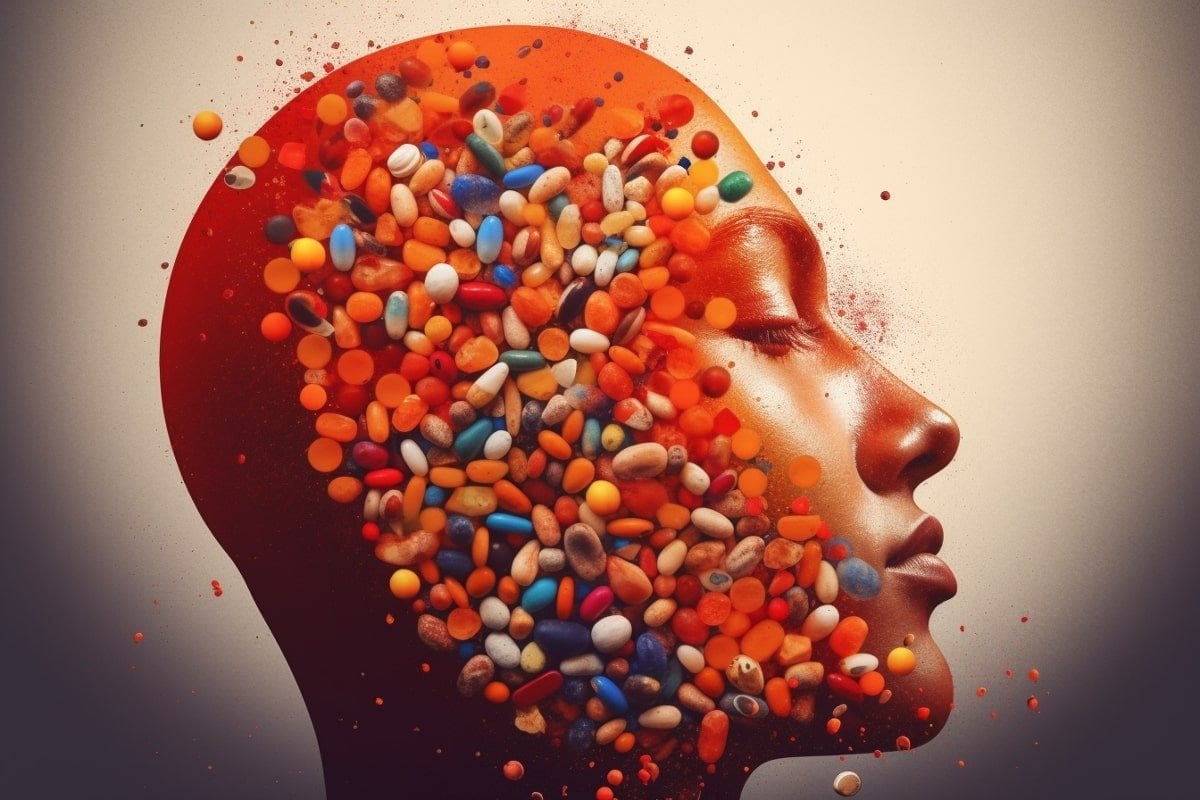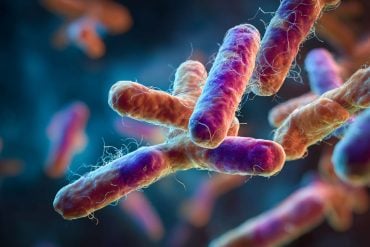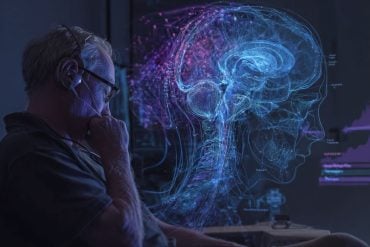Summary: Scientists developed a potential anti-depressant drug that exhibits anti-stressing and anti-depressant effects with minimal side effects. The drug, KNT-127 quickly acts on the patient without inducing resistance.
Researchers found that KNT-127 administration during and after extreme psychological stress significantly improved social interaction and reduced inflammation in the hippocampus.
Key Facts:
- KNT-127 is a potent delta opioid receptor (DOP) agonist with significant anti-depressant activity and quick action, which has minimal side effects.
- In a mouse model of depression, prolonged administration of KNT-127 during and after stress significantly improved social interaction, reduced neuronal inflammation, and suppressed stress-induced newborn neuronal death in the hippocampus.
- KNT-127 administration did not affect neurogenesis even under stress-free conditions, and the anti-stress effect of KNT-127 may offer added benefits for patients during treatment.
Source: Tokyo University of Science
Depression due to psychological stress affects millions of people worldwide. However, most of the existing anti-depressant drugs are slow, prone to development of resistance, and have severe side effects, demanding the need for more effective treatment options.
Delta opioid receptors (DOPs) are known to play a key role in the development of depression and similar diseases. Previous studies have revealed that DOP agonists (substances that bind DOPs instead of the regular compound and cause the same effect) have improved efficacy and lower side effects than most existing anti-depressant drugs.
Recent studies have identified KNT-127 as a potent DOP agonist with significant anti-depressant activity, quick action, and minimal side effects. However, the underlying mechanism of action is not well understood.
To this end, Prof. Akiyoshi Saitoh, Mr. Toshinori Yoshioka, Jr. Associate Prof. Daisuke Yamada, and Prof. Eri Segi-Nishida, at the Tokyo University of Science, along with Prof. Hiroshi Nagase from the University of Tsukuba, set out to assess the therapeutic and preventive effects of KNT-127 in a mouse model with depression.
The findings of this study were published in the journal Neuropharmacology .
Explaining the motivation behind their study, Prof. Saitoh explains, “We previously discovered that delta-opioid receptor (DOP) agonists may quick action and have a low risk of side effects compared to existing drugs. Thus, we have been working on their clinical development as a new treatment strategy for depression.
“In this study, we attempted to elucidate the mechanism of antidepressant-like effects of KNT-127, a selective DOP agonist, in a mouse model of depression.”
The hypothalamic-pituitary-adrenal axis, hippocampal neurogenesis, and neuroinflammation are regarded as the major factors in the processes leading to the development of depression. Thus, understanding the effect of KNT-127 on the above parameters was crucial towards decoding its underlying working principle.
To this end, Prof. Saitoh and team created the depression mouse model called chronic vicarious social defeat stress (cVSDS) mice, by exposing five-week-old male mice to extreme psychological stress for 10 minutes per day, repeated for 10 days. Next, KNT-127 was given to the mice both during (10 days) and after (28 days later) the stress period, to assess its efficacy.
They observed that prolonged administration of KNT-127 during (anti-stress effect) and after stress (anti-depressant effect) period, significantly improved social interaction and levels of serum corticosterone (a hormone secreted under stress in mice) in cVSDS mice.
Moreover, KNT-127 administration during stress, suppressed stress-induced newborn neuronal death in the hippocampus, rather than increasing neurogenesis, or the formation of new neurons.
In contrast, when administered after stress, KNT-127 did not affect newborn neuron survival rate at all. Furthermore, unlike conventional antidepressants, KNT-127 did not affect neurogenesis even under stress-free conditions.
Psychological stress increases the number of microglia and activated microglia in the brains of cVSDS mice. Interestingly, under both models of delivery, KNT-127 suppressed microglial activation and hence reduced inflammation in the hippocampus.
In a nutshell, during and post stress period, KNT-127 prevents neuronal inflammation and reduces newborn neuronal death without affecting neuron formation to exert anti-stress and anti-depressant-like effects, respectively.
However, further research is warranted for better insights regarding DOP agonists and the mechanism underlying their anti-depressant effects.
The anti-stress effect of KNT-127 may offer added benefits for patients during treatment. Prof. Saitoh elaborates, “Patients with depression often have to face situations where they cannot avoid stressful environments, even during treatment. Therefore, we believe that the additional anti-stress effect during the treatment period has important clinical significance.”
Prof. Saitoh concludes by sharing their vision for the future, “We expect that the successful clinical development of DOP agonists will greatly broaden the options for the treatment of depression in the future.”
Funding: This work was supported by the Cyclic Innovation for Clinical Empowerment as part of the Japan Agency for Medical Research and Development (AMED) [grant number 17pc0101018h0001].
About this psychopharmacology research news
Author: Hiroshi Matsuda
Source: Tokyo University of Science
Contact: Hiroshi Matsuda – Tokyo University of Science
Image: The image is credited to Neuroscience News
Original Research: Open access.
“KNT-127, a selective delta opioid receptor agonist, shows beneficial effects in the hippocampal dentate gyrus of a chronic vicarious social defeat stress mouse model” by Akiyoshi Saitoh et al. Neuropharmacology
Abstract
KNT-127, a selective delta opioid receptor agonist, shows beneficial effects in the hippocampal dentate gyrus of a chronic vicarious social defeat stress mouse model
Delta opioid receptors (DOPs) play an important role in depression and other mood disorders. However, little is known about the underlying physiological mechanisms.
The hypothalamic–pituitary–adrenal axis, adult hippocampal neurogenesis, and neuroinflammation are regarded as key pathophysiological factors in depression.
In this study, we investigated the influence of DOP activation on those factors in a valid animal model of depression, chronic vicarious social defeat stress (cVSDS) mice. cVSDS mice (male C57BL/6J mice) were produced following a 10-day exposure to witness of social defeat stress, and each evaluation was performed more than 28 days after the stress period.
Repeated administrations to cVSDS mice with a selective DOP agonist, KNT-127, both during (10 days) and after (28 days) the stress period respectively improved their decreased social interaction behaviors and increased serum corticosterone levels. When administered during the stress period, KNT-127 suppressed decreases in the hippocampal newborn neuron survival rate in cVSDS mice.
Moreover, in both administration paradigms, KNT-127 reduced the number of Iba-1- and CD11b-positive cells in the subgranular zone and the granule cell layer of the hippocampal dentate gyrus, indicating a suppression of cVSDS-induced microglial overactivation.
These results suggest that KNT-127 acts over the hypothalamic–pituitary–adrenal axis and regulates neurogenesis and neuroinflammation resulting in anti-stress effects, and the antidepressant-like effects of the DOP agonist are implicated in the suppression of the neuroinflammation.
This study presents a new finding on the effects of repeated DOP activations on the pathophysiological states of depression.








